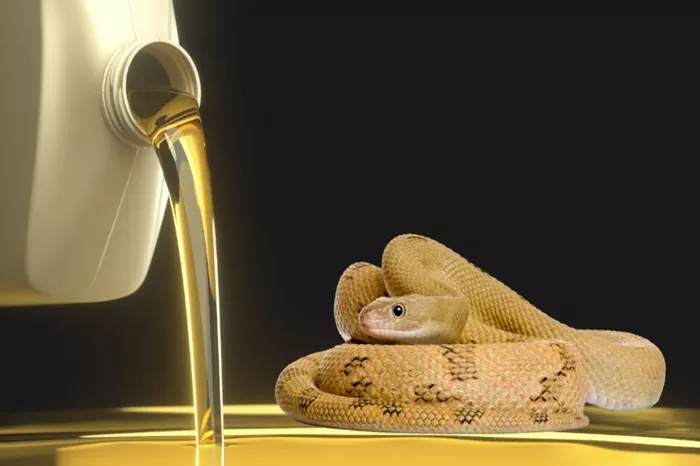Snakes are common in various parts of the world and can pose a significant concern for homeowners, especially in rural and suburban areas. People often seek methods to deter these reptiles from entering their properties. One method that has been discussed is the use of diesel fuel. This article explores whether diesel fuel is an effective snake repellent, its potential hazards, and alternative snake deterrent methods.
Understanding Snakes and Their Behavior
What Attracts Snakes?
Food Sources: Snakes are drawn to areas with abundant food supplies, such as rodents, insects, and birds.
Shelter: Piles of wood, tall grass, and dense shrubbery provide excellent hiding spots for snakes.
Water Sources: Snakes need water to survive, so ponds, fountains, and bird baths can attract them.
Common Snake Species Near Homes
Garter Snakes: Non-venomous and often found in gardens.
Rattlesnakes: Venomous and common in arid regions.
Copperheads: Venomous and prevalent in wooded areas.
Diesel Fuel as a Snake Repellent
The Theory Behind Diesel Fuel
Strong Odor: Diesel fuel has a pungent odor that is believed to be unpleasant to snakes.
Chemical Properties: Some think that the chemicals in diesel fuel can act as a deterrent.
Practical Application
Spraying Diesel: Some people spray diesel fuel around the perimeter of their property or in areas where they have seen snakes.
Soaking Rags: Others soak rags in diesel and place them in strategic locations.
Effectiveness of Diesel Fuel
Anecdotal Evidence: There are mixed reports from individuals claiming success or failure with diesel fuel as a snake deterrent.
Scientific Studies: There is a lack of scientific evidence supporting diesel fuel as an effective snake repellent.
Hazards of Using Diesel Fuel
Environmental Impact
Soil Contamination: Diesel can seep into the soil, causing contamination that affects plant life and soil health.
Water Pollution: Runoff from diesel can pollute local water sources, harming aquatic life.
Health Risks
Human Health: Exposure to diesel fumes can cause respiratory issues and skin irritation.
Pet Safety: Pets may suffer adverse effects from contact with diesel-contaminated areas.
Fire Hazard
Flammability: Diesel fuel is highly flammable and can pose a fire risk, especially in dry conditions.
See also: Will Diesel Fuel Kill Brush? [Revealed]
Alternative Methods to Keep Snakes Away
Natural Repellents
Essential Oils: Oils like clove, cinnamon, and peppermint are known to deter snakes.
Plants: Certain plants, such as marigolds and lemongrass, can repel snakes.
Physical Barriers
Fencing: Installing a snake-proof fence can keep snakes out of your property.
Sealing Entry Points: Ensure there are no gaps in your home’s foundation, walls, or doors where snakes can enter.
Habitat Modification
Remove Food Sources: Keep your yard free of rodents and insects.
Maintain Landscaping: Trim tall grass, remove debris, and keep woodpiles away from the house.
Water Management: Eliminate standing water and reduce moisture around your property.
Chemical Repellents
Commercial Products: There are snake repellent products available in the market that are specifically formulated to deter snakes.
Safe Usage: Follow the instructions carefully to avoid any potential harm to pets or children.
Preventive Measures and Safety Tips
Regular Inspections
Property Checks: Regularly inspect your property for signs of snakes or potential snake habitats.
Professional Help: Consider hiring a pest control professional to assess and manage snake issues.
Educate and Inform
Awareness: Educate family members about snake safety and the importance of not handling snakes.
Emergency Preparedness: Keep emergency contact numbers handy in case of a snake bite.
Deterrent Installation
Ultrasonic Devices: These devices emit sounds that are believed to repel snakes.
Mesh and Wire: Use fine mesh or wire to cover vents and other openings.
Conclusion
While diesel fuel might seem like a quick fix for keeping snakes away, its effectiveness is questionable, and the risks it poses to the environment, human health, and safety are significant. Instead, homeowners should consider safer and more sustainable methods for snake control, such as natural repellents, physical barriers, and habitat modification. Regular property maintenance and professional pest control services can also help in managing and preventing snake problems effectively. By using these methods, you can create a safer and snake-free environment around your home without resorting to potentially harmful substances like diesel fuel.
Frequently Asked Questions About Snake Repellents
1.Does fuel kill snakes?
Fuel, such as gasoline or diesel, can be harmful to snakes if they come into direct contact with it. It is not a recommended method for snake control as it poses environmental and safety risks.
2.Do snakes hate motor oil?
There is no scientific evidence to suggest that snakes have an aversion to motor oil. Using motor oil as a snake repellent is not effective and may pose risks to the environment.
3.Will Irish Spring soap keep snakes away?
There is a popular belief that Irish Spring soap can deter snakes due to its strong scent. However, its effectiveness as a snake repellent is not scientifically proven. It may not provide reliable protection against snakes.
4.What do you mix with Pine-Sol to keep snakes away?
Some people suggest mixing Pine-Sol with water and spraying it around areas to repel snakes. However, Pine-Sol is primarily a household cleaner and its efficacy as a snake repellent is anecdotal and not supported by scientific evidence.
5.What is the best snake repellent?
The effectiveness of snake repellents can vary and there is no universally agreed-upon “best” repellent. Common snake repellents include sulfur-based products, commercial snake repellent sprays, and natural oils like cinnamon or clove oil. It’s important to note that repellents may have limited effectiveness and other measures such as habitat modification are often recommended for long-term snake control.
Related topic:

